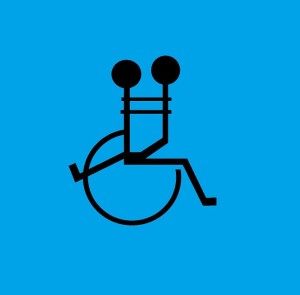How does living along a continuum of poor-to-superior health apply to a non-able-bodied person?
It makes all the difference in the world.
A non-able-bodied person needs to spend proportionately more time on a regimen of self-care, a health-care term that refers to any necessary human regulatory function that’s under individual control, is deliberate, and is self-initiated.

This could involve, but not be limited to, following a strict treatment regiment; exercise; meditation; avoiding risky behaviour or tendencies; therapy; or possibly a combination of all of the above and others.
How does the added dimension of pursuing public postsecondary affect all this?
Any full-time student can attest that the barrage of assignments, labs, and exams requires a delicate work-life balance; for someone on a self-care regimen, it means accepting a state of less-than-optimal health without harming oneself.
What is the benefit of doing an all-night study session if that lack of sleep affects your memory and concentration?
We imagine student life as living in residences and sharing roommate horror stories, but what if your self-care requires you to isolate in part to decompress on a daily basis?
Often, non-able-bodied students are fully aware of the consequences of deviating from that self-care and may reach out for every accommodation the institution can afford. When the options become trading off segments of good health to make minor strides towards reaching an academic or career goal, do others have a right to judge them for accessing it?
It’s a daily regime of choosing not to harm oneself.
